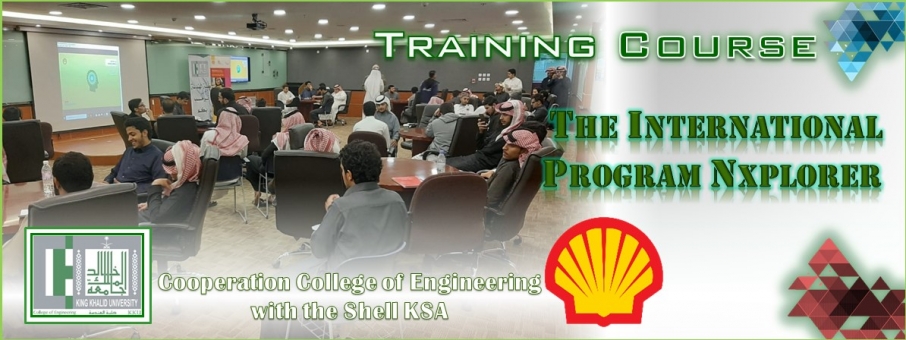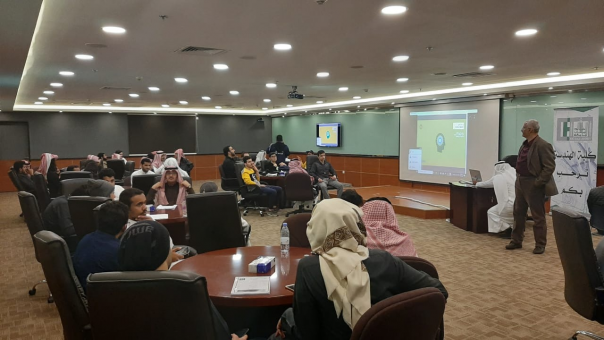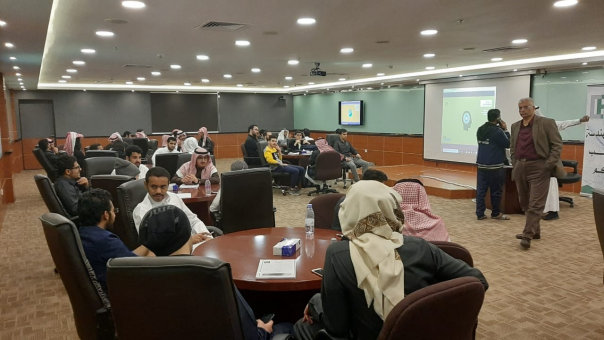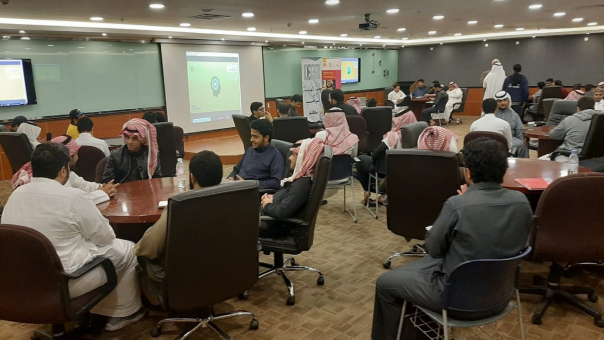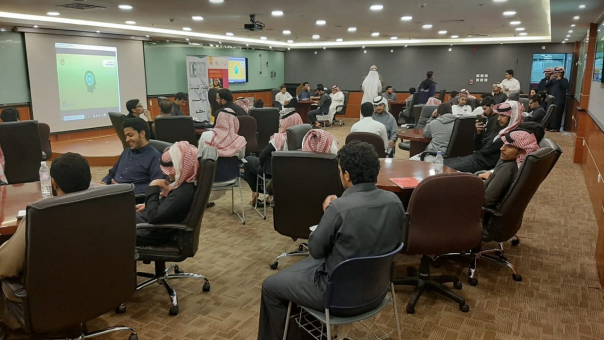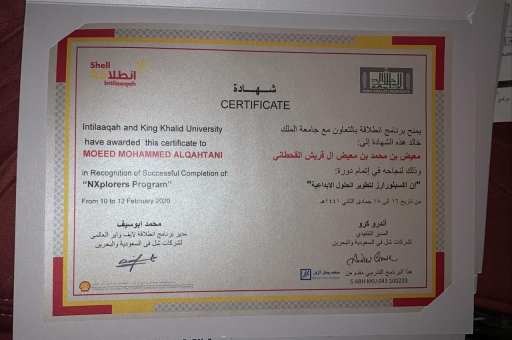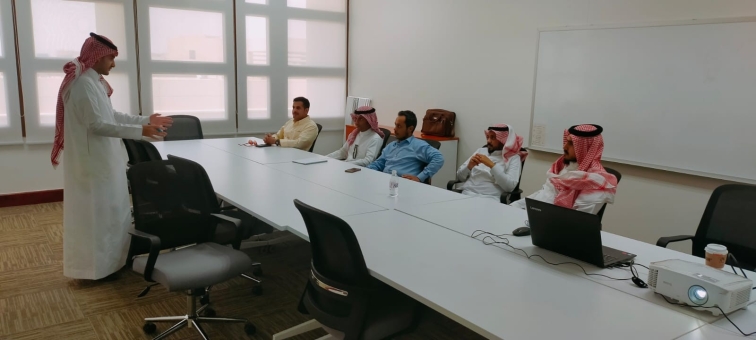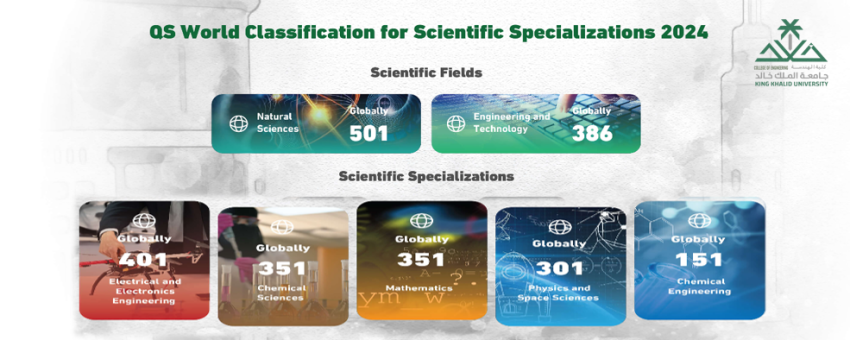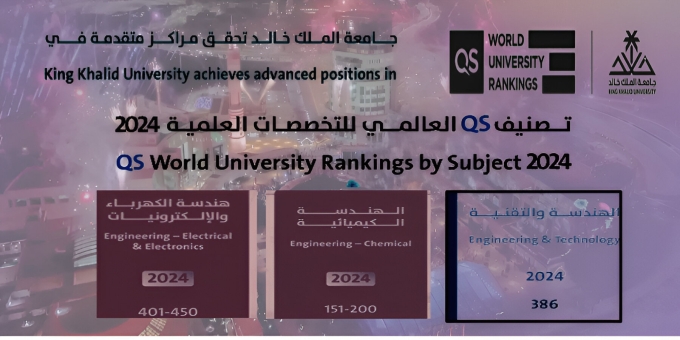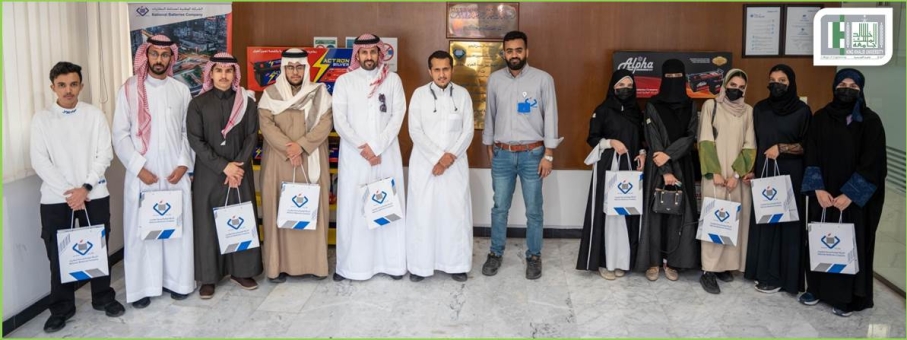In cooperation with Shell, the College of Engineering provided a training course for college students titled: The international Program Nxplorer
Under the auspices of His Excellency the Dean of the College of Engineering Dr. Mohammed Khaloofah Al Mesfer, the Training Unit of the College of Engineering, in cooperation with Shell, presented the international program Nxplorer to 57 students, from all departments, for three days 16-18/6/1441.
The aim of the training program is to provide the trainees with the ability to use creative thinking mechanisms in creating effective solutions that can be applied to local problems related to the environment, food or energy. The program focuses on defining the link between food, water and energy, and building awareness, developing knowledge, and providing tools for thinking and complex problem-solving skills for future leaders.
The NXPLORERS program relies on the use of a unique blend of three approaches:
Systematic thinking: It is a framework for seeing the larger picture rather than seeing isolated parts.
Scenario planning: ask 'what-if' questions to explore alternative perspectives on the future and find reasonable stories about it.
Change theory: a methodology of thinking imagining how and why a particular change is expected.
Merging these methods into one program creates a new way to look at the complexities and challenges that exist in society, and it shows young people how to deal with the complex challenges facing society, now and in the future.



